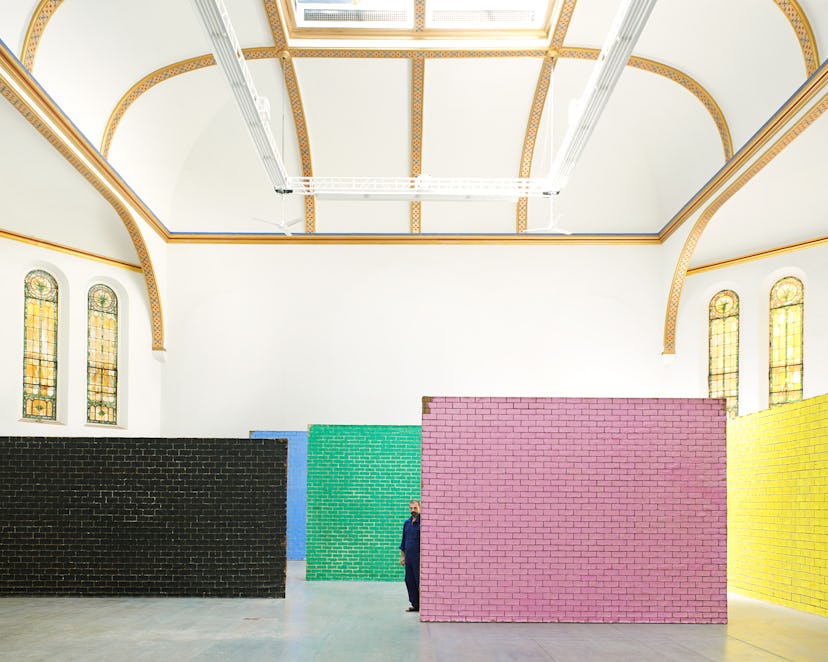Holy Moly
Ugo Rondinone has converted an abandoned church into one of the most divine live/work spaces in New York.

1
Ugo Rondinone, in his Harlem studio, with works in progress.
2
An Italian ceramic zebra holds court in the living room among Rondinone’s tree sculpture Bright Shiny Morning, 1997, Sarah Lucas’s phallic Oboddaddy 2, 2010, Valentin Carron’s cannon, Le Souffleteur, 2005, and, on the wall, from left, Peter Halley’s Stacked Rocks (Cinema Cavern), 1990, and Cady Noland’s metal newsprint works, Untitled, 1989, and her Untitled (The Lincoln Years), 1990. The covered chairs are by West.
3
A stained glass piece by Urs Fischer in the bathroom.
4
In the dining area, Franz West chairs flank a table by Rondinone—on which rest maquettes for his upcoming “Seven Magic Mountains” installation—and on the wall are etchings by Paul Thek, 1975–1992, and Bruno Gironcoli’s sculpture, Head, 1964.
5
A West side table supports Fischer’s Sigh, Sigh, Sherlock!, 2004, and on the wall is Latifa Echakhch’s Frame, 2012.
6
The exterior of the church.
7
Valentin Carron’s I Miss the 20th Century, 2006, hangs above Rondinone’s bed; Martin Boyce’s chair sculpture, Anatomy (for Saul Bass), 2003, sits below Verne Dawson’s Coronation, 2004.
8
Rondinone’s living and dining area, with its soaring stained glass windows.